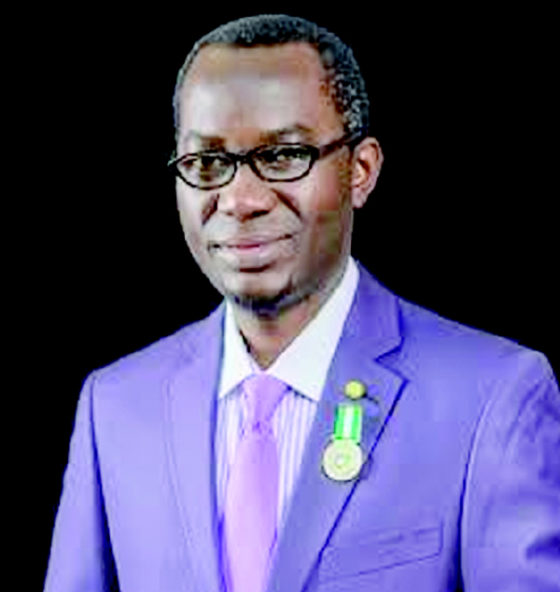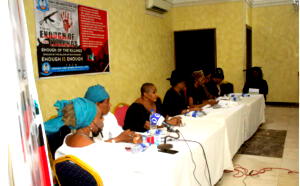Dr. Osahon Enabulele is the President of Commonwealth Medical Association, CMA. Enabulele speaks to Sunday Vanguard on how well Nigeria can ...
 Dr. Osahon Enabulele is the President of Commonwealth Medical Association, CMA. Enabulele speaks to Sunday Vanguard on how well Nigeria can prevent the spread of COVID-19.
Dr. Osahon Enabulele is the President of Commonwealth Medical Association, CMA. Enabulele speaks to Sunday Vanguard on how well Nigeria can prevent the spread of COVID-19.
By Chioma Obinna
How do you assess the preparedness of countries under your coverage?
Since the emergence of Coronavirus in China, over 80,000 cases and 2,800 deaths have so far been recorded globally. About eight Commonwealth countries are affected. They are Singapore, Australia, Malaysia, United Kingdom, Canada, India, Pakistan and Sri Lanka.
READ ALSO: Covid 19: Osun inaugurates 15-man committee to tackle menace
Though the Commonwealth Medical Association considers the increasing spread of the virus quite worrisome, the association appreciates and commends the responses so far shown by affected Commonwealth countries. The association urges the rest of the Commonwealth countries not currently affected
by Coronavirus to step up their level of preparedness and to manage this global public health challenge in a crisis mood. They should partner with the National
Medical Associations and other critical stakeholders in their respective countries, and adopt proactive, pragmatic and strategic approaches to prevent or limit the spread of the virus through various preventive and clinical management approaches. In this regard, the CMA remains committed to deploying her resources to help countries in need of her support and services.
Do you think Nigeria is well prepared and what are your fears?
Though a lot has been said on paper about the preparedness of Nigeria and her health system to manage any potential case of coronavirus, I am not so enthused. I am of the view that a lot still needs to be done to improve Nigeria’s preparedness. Among other measures, surveillance at all of Nigeria’s borders needs to be beefed up. Concerning the current global public health challenge of COVID-19, not much seems to have been done to effectively raise public awareness and participation.
The needed diagnostic infrastructure and other institutional frameworks still need to be strengthened with greater political commitment demonstrated at all levels. This is more so because Nigeria’s health system is yet to conclusively deal a death blow on the Lassa fever scourge that has ravaged many communities and states in Nigeria, with very unfortunate and avoidable deaths of many, including medical doctors and other health workers. Additionally, surveillance at all of Nigeria’s borders needs to be heightened with effective tracking modalities put in place. Defined management protocols for suspected cases should be adhered to.
What should Nigerians begin to do?
Nigerians should constantly seek credible information on COVID-19 and commit themselves to appropriate public health measures to prevent or limit its spread. They must not allow themselves to be hoodwinked by any myth(s) that may be propagated by some unscrupulous agents. If in doubt, they should seek appropriate information from credible institutional sources or their health care provider. They should adhere strictly to personal hygiene practices, including washing of hands with soap and water for at least 20 seconds or with alcohol-based (at least 60 percent alcohol) hand sanitizer. If they develop any suspicious symptoms, they should immediately visit a licensed medical practitioner for their care.
What advice do you have for government?
Government should show the needed political commitment to combat Coronavirus and other contending public health challenges.
They should learn from the experiences garnered during Nigeria’s successful management of the Ebola virus scourge, and effectively deploy them in their strategic response and management approach to COVID-19. I expect government at all levels to commit needed resources to the development of indigenous solutions to Nigeria’s public health challenges, including the development and production of effective vaccines and other preventive remedies.
I expect NCDC to strengthen its public health preventive approaches and its surveillance/tracking mechanisms particularly at all points of entry into Nigeria. The agency should equally partner with other relevant agencies and sectors of government to raise public awareness and participation in their efforts to prevent and manage Coronavirus and other public health challenges. On the release of funds by the Federal Government, money should not only be earmarked, but it should also be ‘eye-marked’ and effectively used for what it is meant for, with adequate and dynamic tracking, monitoring and evaluation of its utilization, performance, and outcomes.
In the case of Lassa fever, some health workers lost their lives. What is your advice to medical workers?
For obvious reasons, medical doctors and other health workers are particularly vulnerable to diseases such as COVID-19 and other viral diseases of public health importance. They should, therefore, be very alert at all times and adhere to universal safety precautions and hygienic practices at their workplaces. They should raise their level of suspicion when dealing with cases that mimic the symptoms found in individuals affected by Coronavirus. They should also help to educate and enlighten patients, individuals and the public on the public health significance and challenge of Coronavirus.
What has been your experience since your installation as President of the Commonwealth Medical Association?
I must say it’s been a wonderful experience so far, working with members of my executive team. The fact that I am the first Nigerian to ever be elected and installed as President of the Commonwealth
Medical Association (CMA) since the body was formed in November 1962 has propelled my resolve to build great foundations and advance the ideals and objectives of the CMA in more fundamental ways. I am committed to leaving behind lasting legacies in the Commonwealth.
These clearly explain why we immediately hit the ground running after my election and subsequent installation as President of the Commonwealth Medical Association. One has so far tried to concretely address some internal and external challenges of the CMA in the last three months of our stewardship. This is basically in line with the agenda I publicly espoused in the course of delivering my acceptance speech during my inauguration ceremony on November 5, 2019.
READ ALSO: Coronavirus: China bans consumption of wild animals
As you are aware, there are over 50 countries that belong to the Commonwealth and whose national medical associations are members of the Commonwealth Medical Association (CMA). We have quite a large constituency. We have therefore undertaken some confidence building and rebranding measures, even though the association has existed for over 57 years.
We are strengthening our engagements with the National Medical Associations and getting them to make more commitments to the cardinal objectives of the CMA. We have made some progress in rolling out our plans for addressing the increasing violence against medical doctors and other health workers. We have been loud and clear on this issue, as well as our defense of the ethics and the autonomy of the medical profession.
We hope to engage the Commonwealth secretariat, the health ministers, and various heads of government in the Commonwealth at the forthcoming Commonwealth Heads of Government Meeting, CHOGM, on our proposals for fast-tracking the attainment of universal health coverage across the Commonwealth, particularly in the low and middle-income countries of the Commonwealth. Indeed, there are a whole lot of other policies, plans, and programmes we intend to give some expression during our three-year tenure. We hope to secure the necessary resources, partnerships and enabling platforms to advance them, to the glory of the CMA and the citizens of the Commonwealth.
The post COVID-19: I am not so enthused about Nigeria’s preparedness — Enabulele, C’Wealth Medical Association President appeared first on Vanguard News.

No comments